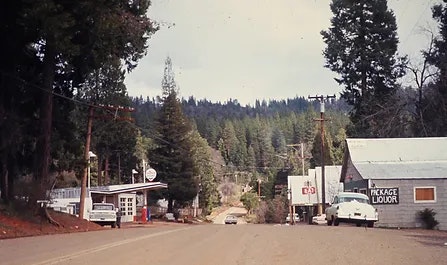Irrigation

GM's FAQ - May 23, 2023
Answer to Question Number 1: The irrigation season usually lasts from April 15th to October 15th. This year the irrigation water season started later because repairs to the District’s water conveyance system were necessary before irrigation water could start to flow.
Answer to Question Number 2: Our rate for irrigation water is $320 for 10 gallons of water per minute. The District’s contract with our irrigation customers describes this measurement as a “Miner’s Inch.”
Answer to Question Number 3: In California, the term “Minor’s Inch” is used as a matter of tradition, but virtually any amount of water can be considered a “Miner’s Inch.” The California Water Code defines a “Miner’s Inch” as “equivalent to one and one-half cubic feet of water per minute, measured through any aperture or orifice” – which is 11.2 gallons per minute. But the parties to a contract are free to define the term however they want. For example, a contract defining a “miner’s inch” as 13,000 gallons per 24 hours [9.0] gallons per minute] was held by the California Supreme Court to be valid. The District’s contract with its irrigation water customers describes a “Miner’s Inch” as 10 gallons per minute. By signing the contract, an irrigation water customers agrees that a “Miner’s Inch” equals a flow of 10 gallons per minute. The contract is posted on our website at, https://www.nywd.org/irrigation-info.
Answer to Question Number 4: Yes, and District administrative staff is examining the question. However, regardless of how decisions were made in the past, the current Board of Directors is determined and committed to properly addressing these kinds of concerns, and any decision to increase irrigation water will take time to properly examine and act upon. It is likely one or more public hearings will be necessary to consider all of the factors that weigh in favor of and against the proposal to increase irrigation water delivery, including water availability, the affordability of any price increase. If there is a decision to change the current irrigation water contract, it will probably take effect after the current irrigation season.
Answer to Question Number 5: The District has long believed that all of our customers believe that who they are and how much water they purchase is private, personal information. We have respected that expectation, and will not release private, personal information, even to Board Members.
Answer to Question Number 6: In 2020.
Answer to Question Number 7: Yes.
Answer to Question Number 8: Like our water prices, the irrigation water measurements stated in the District’s irrigation water contracts have not changed for many years. In 2016, the contract defined a Miner’s Inch as 11.25 gallons per minute. In 2019, the contract defined a Minor’s Inch as 10 gallons per minute. From what I know, it has not changed since then.
Answer to Question Number 9: Like us, BVID defines a Miner’s Inch as 10 gal per minute. NID defines it as 11.25 per minute. I am not sure what factors past NYWD boards used to set water prices. However, any future changes will not be based solely on what our neighbors are charging their customers. Our decision will be based on balancing factors like water availability (both now and per future projections), the financial effect of any price increase on our customers, and the short and long-term financial consequences to the District from any price reduction.
Answer To Question Number 10: I am not sure how prior District boards decided how much to charge for irrigation water. I know that the District does not provide either residential or irrigation water at market prices. Setting water prices is not a purely “business” decision. If we charged our customers what it cost us to deliver water, if we tried to make a profit, then many of our customers could not afford to purchase water. Even South Feather delivers irrigation water to its customers for less than it costs South Feather to deliver that water. Like virtually every California water district, NYWD provides water at a discount, subsidizing the actual cost with income the District receives from sources other than taxation. If and when the District decides it is necessary to charge more for water, the Board must consider the circumstances of our water customers.
